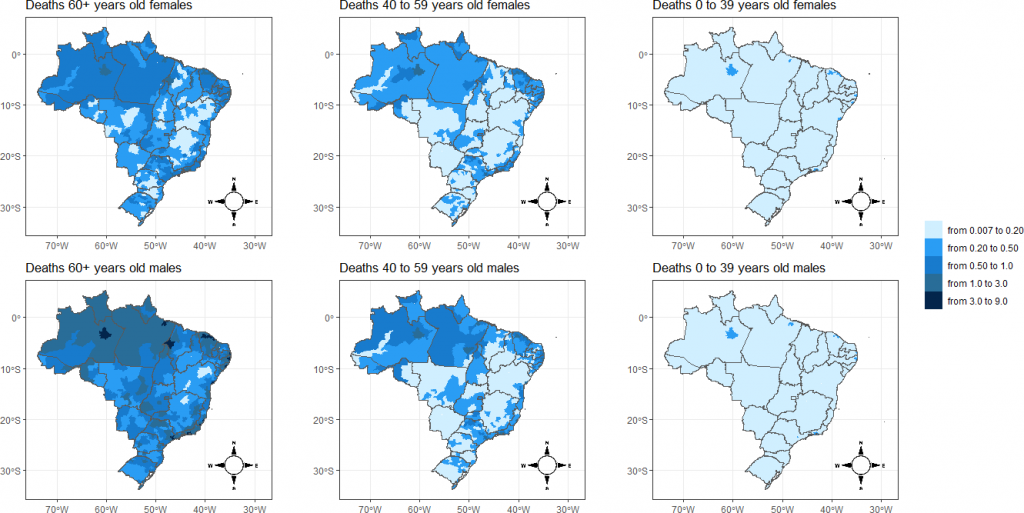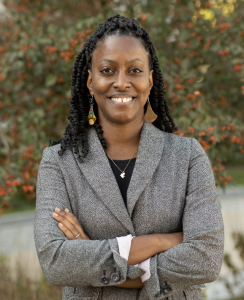-
The Silicon Valley Syndrome
Olav Sorenson, UCLA
How does expansion in the high-tech sector influence the broader economy of a region? We demonstrate that an infusion of venture capital in a region leads to: (i) declines in the number of establishments and in employment in non–high-tech industries in the tradable sector; (ii) increases in entry and in employment in the non-tradable sector; and (iii) a rise in income inequality in the non-tradable sector. Expansion in the high-tech sector therefore leads to a less diverse tradable sector and to increasing inequality in the region.
April 13, 2022
Wednesday, 11:45am
Zoom Meeting
Meeting ID: 966 3702 3159
Passcode: 831176If you cannot join with video, you can connect to the Zoom session via phone: 1–346–248–7799
-
Navigating the French Deep State From Within: An Extreme Case of Joint Regulation of Business at the Commercial Court of Paris
Dr. Emmanuel Lazega, Sciences Po Center for the Study of Organizations Paris
How is market discipline enforced in France, a country in which the Sun King’s administration created a new kind of deep state in the 17th century? In this presentation we focus on an extreme case of joint regulation of markets (by business and the state) in a 450 years-old institution, a first level judicial and so-called “consular” court in which lay and voluntary judges, all businesspeople, sit in judgment of commercial litigation and bankruptcy. To characterize this form of joint regulation we use a longitudinal network study of advice seeking among these judges, as well as face to face interviews and jurisprudential exercises carried out with them about their normative choices in areas of discretionary decision making (damages in cases of unfair competition; conflicts between boards and minority shareholders; etc.). An organizational analysis of the court and stochastic blockmodeling and Siena models of the advice networks shed light on several ways in which the financial industry dominates this institution and form of joint regulation. Judges who are bankers with a law degree surf at the top of the cyclical dynamics of the court’s advice network. They use this influential position to share and spread their financial legal pragmatism among the other judges, setting the premises of the court’s decisions. Our neo-structural approach and this case in point help shed light on long term strategies used by organized business, especially finance, to navigate the French notoriously deep state from within.
April 6, 2022
Wednesday, 11:45am
Zoom Meeting
Meeting ID: 954 7703 6703
Passcode: 378673If you cannot join with video, you can connect to the Zoom session via phone: 1–346–248–7799
-
Uncertain Expertise in Trans Medicine
Dr. Stef Shuster, Michigan State University
Medical professionals are expected to be experts in their fields. But what happens when they lack the typical benchmarks – experience and evidence – to support such claims to expertise? In their recently published book, Trans Medicine: The Emergence and Practice of Treating Gender (NYU Press) shuster examines these lasting puzzles and uses the case of trans medicine to consider the strategies providers use to maintain medical authority and expert status in modern medicine when the claims to such are fraught with uncertainty.
March 30,2022
Wednesday, Noon
Zoom Meeting
Meeting ID:930 8907 2841
Passcode: 632222If you cannot join with video, you can connect to the Zoom session via phone: 1–346–248–7799
-
How Crisis Changes the Meaning and Perception of Entrepreneurial Opportunity
Dr. Kim Klyver, University of Southern Denmark
We investigate how an institutional crisis affects individuals’ opportunity perception and startup behavior. We used qualitative analysis of the entrepreneurship media discourse before, during, and after the 2008 financial crisis to theorize individuals’ opportunity perception and startup behavior and quantitatively tested these expectations on a repeated cross-sectional dataset spanning from 2004–2012 (n= 18,564).
March 23, 2022
Wednesday, 11:45am
Zoom Meeting
Meeting ID: 993 0294 1792
Passcode: 253675If you cannot join with video, you can connect to the Zoom session via phone: 1–346–248–7799
-
A Sociodemographic of the COVID-19 Pandemic in Brazil
Dr. Bernardo Queiroz, CEDEPLAR, Universidade Federal de Minas Gerais, Brazil

Brazil was ranked third globally in the number of confirmed cases, behind only the United States and India; and was ranked second globally in the number of deaths, surpassed only by the US. Brazil’s central authorities decided not to follow WHO recommendations, and hence ignored advice to employ measures to prevent the spread of the disease that were implemented in most countries. This failure to follow public health advice may have exacerbated the negative effects of the pandemic. The presentation focuses on the evolution of the pandemic in the country taking into account population dynamics and socioeconomic variables. We will also discuss how the country did not use the universal public health and surveillance system to tackle the pandemic. This type of analysis, at the local level, is very important to develop proper public health interventions and evaluate the impact of the pandemic.
March 9, 2022
Wednesday, 11:45am
Zoom Meeting
Meeting ID: 962 6371 5339
Passcode: 136795If you cannot join with video, you can connect to the Zoom session via phone: 1–346–248–7799
-
The Rise of Criminal Governance and Social Reaction in Michoacán, Mexico
Joel Herrera, University of California, Los Angeles
In many developing countries where formal institutions fail to guarantee rule of law, criminal organizations have emerged as intermediaries between citizens and the state. In some cases, these armed non-state actors adopt repressive strategies to govern their territories and local populations. Under what circumstances do local actors mobilize against criminal governance? Can armed collective action mitigate or reduce violence? To answer these questions, my research examines the cycles of violence that gave rise to, and were perpetuated by, the autodefensas of Tierra Caliente, Michoacán.
March 2, 2022
Wednesday, 11:45am
Zoom Meeting
Meeting ID: 987 5308 9049
Passcode: 734470If you cannot join with video, you can connect to the Zoom session via phone: 1–346–248–7799
-
Physical Disability Over the Life Course: Implications for Well-Being and Social Integration
Dr. Deborah Carr, Director of the Center for Innovation in Social Science, Boston University
Rates of physical disability in the United States and worldwide are increasing steadily, due in part to population aging. Disability can take a powerful social and emotional toll; persons with disability face stigmatization and are subject to daily microaggressions, especially in wealthy capitalist nations that place a high value on “able-bodied” workers. It is unclear precisely what forms this stigmatization takes, whether its impacts vary over the life course, and whether disability intersects with other social identities such as sex, occupational status, and race. This presentation uses data from the Midlife in the United States (MIDUS) to examine the impacts of physical disability on experiences of institutional and interpersonal discrimination, quality of work experiences, and mental health. Implications for social, health, and workplace policies are highlighted.
February 23, 2022
Wednesday, 12–1:30pm
Zoom Meeting
Meeting ID: 950 3539 7363
Passcode: 706091If you cannot join with video, you can connect to the Zoom session via phone: 1–346–248–7799
-
Race, Class and State Capacity for Development in Trinidad and Tobago
Dr. Zophia Edwards, Providence College

Existing development theories predict that factors such as natural resource wealth and the legacies of European colonizers inhibit development. However, the case of Trinidad and Tobago challenges these theories, as a resource-rich former colony that has achieved high levels of development. What accounts for Trinidad and Tobago’s development trajectory? Using the Black Marxist radical tradition, this study emphasizes what existing development theories miss, namely, the role of multiracial labor organizing in enabling Trinidad and Tobago to escape the development trap. The findings suggest that development studies attend to organized labor and how race and class interact to shape post-colonial development.
Zophia Edwards is an Associate Professor of Sociology and Black Studies at Providence College. Her areas of research and teaching include race and racism, political economy, postcolonial sociology, labor movements, international development, and political sociology.
February 16, 2022
Wednesday, 12–1:30pm
Zoom Meeting
Meeting ID: 923 5156 5437
Passcode: 211673If you cannot join with video, you can connect to the Zoom session via phone: 1–346–248–7799
-
Frontiers: How Global Capitalism Creates Zones of Extreme Racial Violence
Dr. Samuel Cohn, Texas A&M University
Frontier Capitalism is drenched in blood. Most discussions of capitalism, social structure and race focus on the dynamics of settled areas. Recent work by Ecological Marxists suggests that capitalism is extremely dependent on its frontiers. The demographic, class and racial dynamics of wooded or mountainous frontiers are completely different from those of cities or of agricultural lowlands. The structural properties of frontiers promote extreme violence. The social dynamics of these conflicts promotes a racialization of interaction patterns. All of this is grounded in the intrinsic economics of the frontier and what capitalists and workers on the distant edges of capitalism do to survive. Examples come from nineteenth century Malaysia, Thailand and Texas.
February 9, 2022
Wednesday, 12–1:30pm
Zoom Meeting
Meeting ID: 927 8935 4137
Passcode: 531513If you cannot join with video, you can connect to the Zoom session via phone: 1–346–248–7799
-
Sanctified Saints: Race, Gender, Politics, and Black Pentecostalism
Vanessa Verner, Texas A&M University
During the racial uprisings of summer 2020, a Pentecostal preacher proposed to his listeners, “You should not be more Black than you are Christian.” That preacher’s proclamation prompted a series of questions on ways to analyze contemporary Black Pentecostal people.
This colloquium discusses how religious affiliation shapes the ideologies of Black Pentecostals. How do Black Pentecostals conceptualize, define and operationalize “conservatism”? How do they decipher racial identification through discourse, church/religious engagement and church materials and curriculums? How has American Christianity or American Nationalism affected how Black Pentecostals think about race, racism, and gender in the post Civil Rights era?
February 2, 2022
Wednesday, 12–1:30pm
Zoom Meeting
Meeting ID: 936 7957 7598
Passcode: 638689If you cannot join with video, you can connect to the Zoom session via phone: 1–346–248–7799
-
Racial Dimensions of US Post-9/11: Counterterrorism and the Conflict in Burkina Faso
Dr. Stephanie Savell, Watson Institute for International and Public Affairs, Brown University
As part of its post-9/11 military operations, the United States provides counterterrorism “training and assistance” to dozens of countries, many of them in Africa. Through the case of Burkina Faso, Dr. Stephanie Savell examines the profound costs of so-called assistance for other nations in waging their own “wars on terror.”
The US has provided counterterrorism funding and training to Burkina Faso, a landlocked country in the West African Sahel, since 2009, but it was only several years later that the country began to experience militant violence linked to what local people call “jihadism.” US counterterrorism in Burkina Faso, and Africa more generally, manifest racism through tropes about the need to extend central government authority to what the US military calls “under governed spaces” – that is, the state peripheries that are home to minority Muslim ethnic groups, among others.
Dr. Savell parses the racialized dimensions of the current conflict in Burkina Faso and the US role in it and argues that US-supported counterterrorism has fed insecurity, intensifying militant violence by fueling resentment against government injustices. Stephanie Savell is an anthropologist of militarism, security, and civic engagement, focused particularly on the US post-9/11 wars and on militarized policing in Rio de Janeiro favelas.
See poster on this link.
January 25, 2022
Tuesday, 12–1:30pm
Zoom Meeting
Meeting ID: 953 7709 9688
Passcode: 308552If you cannot join with video, you can connect to the Zoom session via phone: 1–346–248–7799
